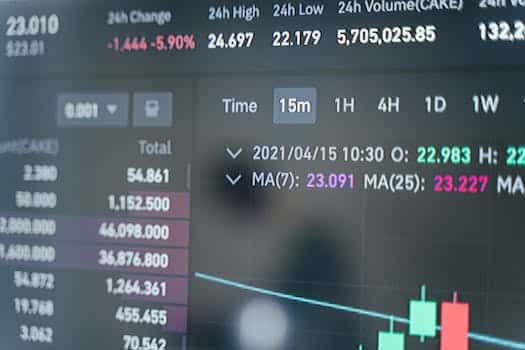Due to the present pandemic, there has been a dramatic increase in remote labor, making it all the more important to safeguard sensitive data. Data breaches and cyber-attacks have become a big problem for businesses as a result of the increasing number of remote workers. This article will address the privacy and security risks associated with remote work and offer suggestions for mitigating such risks.
- 1. Introduction
- 1.1. The rise of remote work
- 1.2. The importance of security and privacy
- 1.3. The need for remote work policies
- 2. Security Concerns
- 2.1. The risk of cyber attacks
- 2.2. The use of public Wi-Fi
- 2.3. The need for strong passwords
- 2.4. The importance of anti-virus software
- 2.5. The risk of data breaches
- 3. Privacy Concerns
1. Introduction
As the number of people who do their jobs remotely grows, so does the importance of keeping sensitive information safe. The advantages of working remotely must be balanced against the increased privacy and safety concerns that are introduced. In this post, we’ll look at some of the ways that remote workers may keep sensitive data safe.
1.1. The rise of remote work
For a number of years now, businesses have been increasingly accepting of remote workers. The COVID-19 epidemic has expedited this trend by compelling many companies to implement remote work practices in order to protect their personnel. While there are many advantages to working from home, there are also some risks and privacy issues that must be addressed. The safeguarding of sensitive data is a major cause for concern. Working remotely increases the risk that employees will access confidential information from locations other than the company’s internal network. Data breaches and cyberattacks become more likely as a result, which can have disastrous effects for the business and its customers. Companies need to take precautions to protect their remote workers’ privacy and the security of company data.
1.2. The importance of security and privacy
People are increasingly able to work from home because to technological advancements. There are advantages, such as shortened commute times and greater freedom, but there are also disadvantages. The safety and privacy of sensitive data is a major concern for remote workers. Extra security measures should be taken to prevent unauthorized access to private information when working remotely. This article will discuss security and privacy issues that can occur when working remotely and offer suggestions for mitigating those risks.
1.3. The need for remote work policies
Companies need to have strict rules in place to safeguard sensitive data as the trend toward remote work continues to grow. The danger of security attacks and data breaches increases when workers may work from anywhere using any device they want. In this piece, we’ll talk about the importance of remote work policies and the risks and benefits of doing your job from home.
2. Security Concerns
One of the primary issues with remote work is keeping sensitive data safe. Examples of such materials include confidential records, client information, and trade secrets. Several precautions, such as strong passwords, file encryption, and avoiding public Wi-Fi, can be taken to keep this data safe. Phishing schemes and other sorts of cyber attacks are another potential threat that should be avoided at all costs. Remote workers can protect their privacy and the security of their company’s sensitive data by following these measures.
2.1. The risk of cyber attacks
In the wake of the COVID-19 outbreak, remote work has gained considerably more traction than it already had. This does open up some new possibilities and conveniences, but it also raises some new security issues. The possibility of cyber attacks is a major threat to remote workers. Home networks and individual devices typically lack the same level of security as corporate networks, making them easy targets for hackers. Theft of bank data, client information, and trade secrets are all possible outcomes of this situation. Therefore, it is essential for remote workers to adopt preventative measures against cyber threats to safeguard themselves and their companies.
2.2. The use of public Wi-Fi
It is normal practice to use free public Wi-Fi when working from home. However, your private data is at serious risk if you use public Wi-Fi. Passwords, credit card numbers, and other personal information are all easy pickings for hackers and cybercriminals to intercept and steal. When accessing public Wi-Fi, it is critical to safeguard sensitive data. In this part, we’ll go over some of the risks of accessing public Wi-Fi and offer advice on how to protect yourself while doing so.
2.3. The need for strong passwords
When working from a distance, it is especially important to use robust passwords to safeguard sensitive data. Many methods exist that cybercriminals employ to break through insecure passwords and obtain private information. Passwords should be at least 12 characters long and comprise a mix of uppercase and lowercase letters, numbers, and symbols. Don’t make your password anything simple to guess, such your name or date of birth. Passwords should be unique for each account, and they should be changed frequently. By adhering to these guidelines, remote workers can greatly lessen the likelihood of a cyber attack and safeguard their sensitive data.
2.4. The importance of anti-virus software
When working remotely, antivirus software is essential for protecting sensitive data. It aids in keeping a computer free of malware and viruses that could compromise or steal information. Without adequate anti-virus software, remote workers put sensitive data at danger of being accessed by the wrong people during cyber assaults. Investing in anti-virus software and keeping it up-to-date is crucial for protecting the privacy and confidentiality of remote workplaces.
2.5. The risk of data breaches
Recently, data breaches have received a lot of attention, and with the expansion of remote work, the possibility of a breach has grown. When working away from the office, employees may use unsecured Wi-Fi networks or unprotected personal devices. Because of this, sensitive data may be at risk of being compromised by cybercriminals. Having robust security measures in place and educating staff on best practices for securing sensitive information while working remotely is essential for businesses.
3. Privacy Concerns
The rise of the remote workforce has raised the issue of data privacy like never before. Protecting sensitive data is essential, whether you’re at the office or at home. This involves measures such as connecting only to trusted networks, employing complex passwords, and staying away from unsecured public networks. Keep in mind that there are risks associated with sharing personal information online, such as phishing schemes. Taking these precautions can help keep your private and business information safe from prying eyes.
3.1. The use of personal devices
With the advent of remote work in recent years, the usage of personal devices for work has grown increasingly common. While this has the potential to greatly improve convenience and adaptability, it also poses serious privacy concerns. When employees bring their own devices to the office, the organization runs the risk of sensitive data being stored and transmitted on devices that may not comply with security and privacy standards. Because of this, the data may be susceptible to hacking, theft, or even inadvertent disclosure. Companies need to set clear policies and standards for workers’ use of personal devices at work and offer them with training and tools on how to safeguard sensitive data when working remotely.
3.2. The risk of employers monitoring employees
Employees’ privacy may be at risk because their employers can keep tabs on them as they work from home. Internet activity, keystrokes, and screenshots are all possible forms of surveillance. While companies may claim this is essential to employee productivity and security, it also poses a privacy risk to workers. Clear policies and standards for monitoring should be established by employers, and workers should be made aware of their rights and the scope of possible monitoring.
3.3. The need for secure communication channels
Working from afar is a reality for many companies and workers in the modern economy. This newfound adaptability, however, necessitates the use of encrypted channels of communication to safeguard sensitive data. Since more and more people are now working remotely, privacy issues have become more pressing than ever, and precautions must be taken to protect sensitive information. In order to prevent unwanted access to sensitive data, it is necessary to use security measures such as encryption and multi-factor authentication. By placing a premium on security and privacy, companies can safeguard sensitive data and continue to earn the loyalty of their customers.
3.4. The importance of data encryption
When working remotely, it is crucial to encrypt data to prevent unauthorized access to sensitive information. Data encryption is more crucial than ever in this age of ever-increasing cyberthreats. Through the use of encryption, private data is protected from prying eyes. It’s a great way to safeguard information during transmission or storage online. Businesses, like banks and hospitals, that deal with private consumer information should prioritize data encryption. Companies can save face and money by avoiding embarrassing data breaches and protecting their customers’ personal information with encryption.
3.5. The risk of third-party access
Third-party access to sensitive data is a major concern when employees are dispersed across geographic distances. This can occur if you are using an unsecured public network or a third-party service to store or share data. If your data is not secure, hackers and cybercriminals can readily access it, perhaps leading to identity theft or financial fraud. When working remotely, it is essential to take precautions to protect sensitive data, such as using secure networks and services, encrypting data, and being selective about who you share data with.
Conclusion
In conclusion, a mix of security measures and appropriate behavior is required to protect confidential information when working remotely. Remote workers can protect their employers’ and their own privacy by utilizing encrypted communication tools, avoiding public Wi-Fi networks, and according to corporate regulations and procedures.




